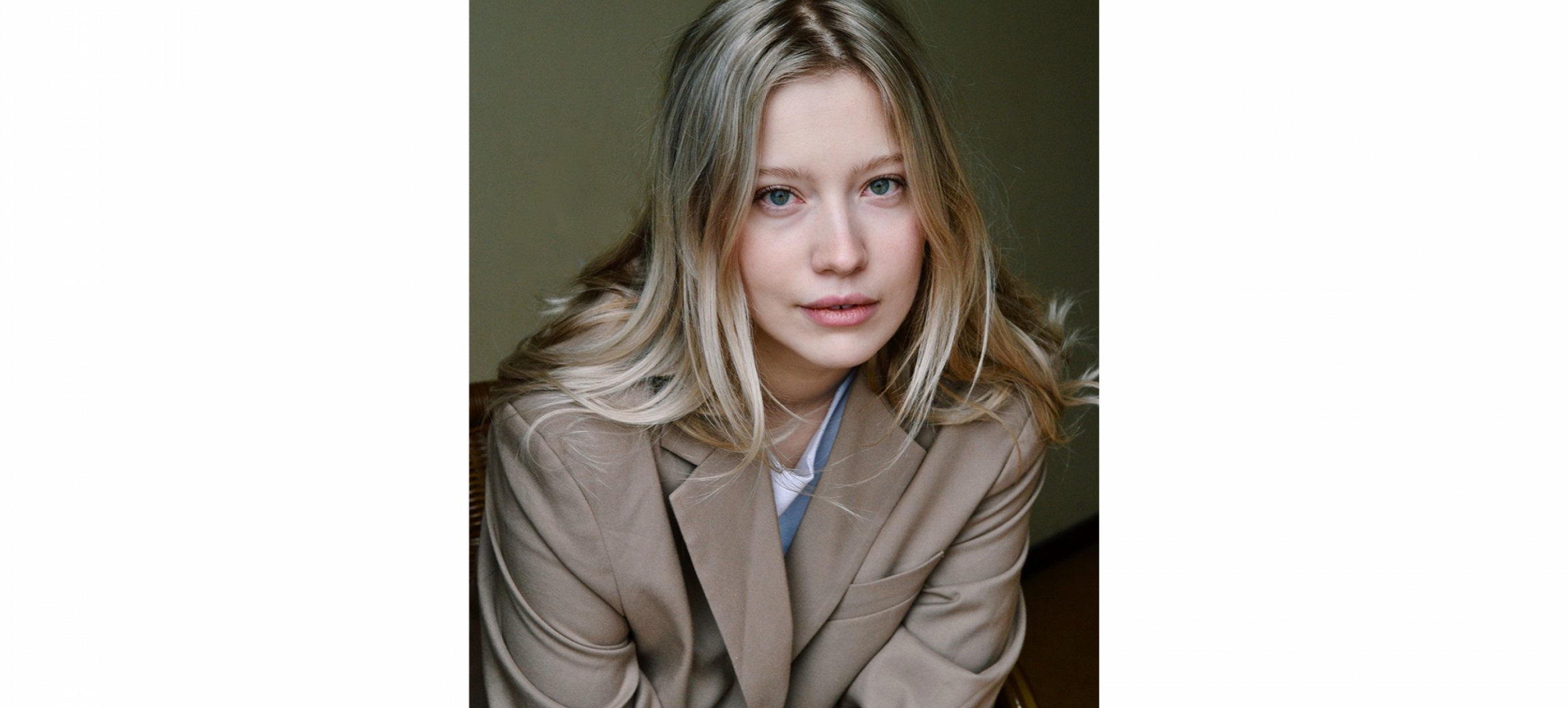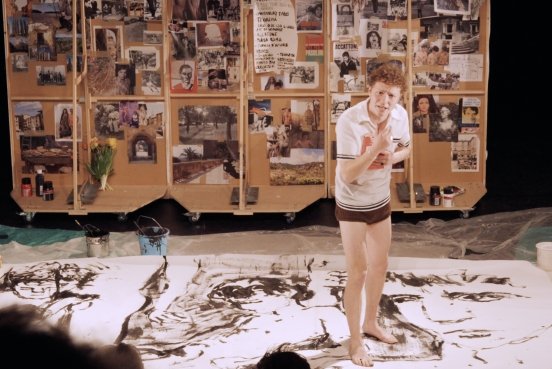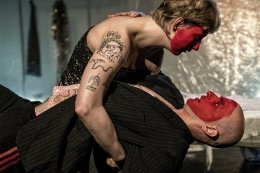How an e-mail changes the School of Acting
During this academic year, students and lecturers from the School of Acting are only using sources created by women in their lessons and projects. This is in response to an e-mail from Nikki Kuis, an ArtEZ alumnus. How did the first half of the year go? Ernst Braches, head of the School of Acting, Ricarda Franzen, lecturer in Performance Practices and alumnus Nikki Kuis tell us more.

Work by female authors as teaching material
The reason for this project was an e-mail from Nikki Kuis, ArtEZ alumnus, to Ernst Braches, head of the School of Acting. Ernst: "During her studies, Nikki had only worked with one theatre text and one philosophical text by a woman. Nikki's message inspired this project: before the academic year, we decided to spend an entire year only working with sources created by women.
Projects about inclusion and diversity had an impact on discussions about this. Workshops by Aminata Cairo and Winnie Roseval made students and lecturers aware of the dominant story of the theatre canon. If we wanted to accommodate other stories, we would need to make that space ourselves.
The principle goes further than using theatre texts written by women alone. In vocal classes, work by women composers is used. In lessons like performance practices and philosophy, acting theories and philosophical texts by women are used. Both students and lecturers spend a year using work created by women. In short, it replaces the repertoire and the pieces that we used before this academic year in all kinds of classes, from vocal lessons to philosophy." Ricarda, lecturer in Performance Practices, adds: "In my class, we extend this project into acting theories or performances created by women. Work by women authors in all respects forms the teaching material."
A shared research
"One of my greatest concerns beforehand was whether we could find enough sources from history," says Ricarda. Ernst: "Some students were worried whether they would miss things. Obviously, it's a huge step to spend a year without Shakespeare and the ancient Greeks."
Ricarda: "Fortunately, we found lots of material. For example, Rob Klinkenberg translated a piece written by Aphra Behn. What makes this particularly special is that these are comedies from the 17th century which have never been translated before. There are also many adaptations of texts by women." Ernst: "We rediscovered so much that we'd forgotten about. And the teaching material was modernised: because women only really got a public voice in the 20th century, that's now the emphasis in the teaching material. It's shared research by lecturers and students."
Awareness
Now that the School of Acting is involved in this project, things are started to be noticed. Ricarda: "We started the year with adaptations of well-known plays by women. During the lessons, we started wondering what the female perspective is. An awareness has arisen now that we are all working on them. It's become an issue for the students." The gender issue also came up, Ernst noted. "By saying 'everything by women", again you're choosing a dual system. On the one hand, you are talking about the woman and on the other hand the man. But that choice is immediately arbitrary."
Nikki Kuis
Nikki Kuis, School of Acting alumnus, wrote the e-mail to Ernst after becoming increasingly aware over the years of the role of women. "In the theatre as an actress, but also in plays. By talking to actresses and women directors, while writing my thesis, I developed a criterion against which I can measure the extent to which a women's role is portrayed in an emancipated way. The idea to send an e-mail to Ernst came while writing my thesis about the role of the woman in theatre.
I discovered that during my four years of performance lessons, I had only worked with texts written by men. Which is understandable, seeing that until the 17th century, pieces written by women simply weren't published, let alone performed. But in subsequent centuries, many interesting and important texts were written by women. Because I had helped collect texts, I am now regularly asked by students at the School of Acting, as well as actresses who have graduated, whether I know of any interesting texts for women. It's so nice and inspiring to see what this research has generated, and that it interests so many people.
Het leek mij goed als er meer vanuit het vrouwelijke perspectief lesgegeven werd, omdat dat een ander perspectief is dan van de man.
I left the School of Acting, and then to say that something must change was stressful. It's wonderful that it has been embraced by the School of Acting."
Treasures
"This is what I would advise to students: read a lot. There were very many women writers that I didn't know. By really looking, I found them. Precisely because they may be unfamiliar texts and works, you sometimes find treasures."
If you look, don't look for the familiar. Look outside the box.


